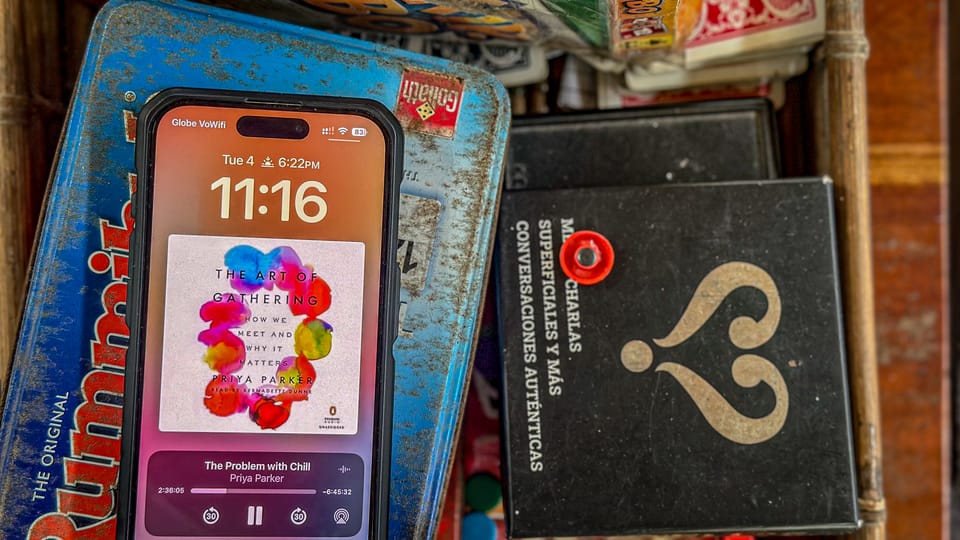clarity is kindness. 💎

Clear is kind; unclear is unkind.
— Brené Brown
🕶️ Be more chill?
At the start of the year, I struggled with a realization: being "chill" isn't always the best approach. In specific contexts, it can even be unkind. And I am, more often than not, very chill.

By being chill, I mean allowing things to happen naturally without interference. This can lead to good things and sometimes spontaneous fun. Keeping your hands open and letting go of things when they are beyond your control is also necessary.
However, I had to learn that being "chill" is not ideal when you're leading any social interactions (e.g. meetings, events, dinners).
Growing up, I thought this would be the epitome of kindness and hospitality – letting people be. But being too laid-back can result in a lack of direction and purpose. This can cause any event to feel uneventful... and feel like another routine.

"Chill" is selfishness disguised as kindness
— Priya Parker
Over the past few months, I've observed and learned from various hosts—from the accommodations where I'm staying, from dinners organized by a host, and from skilled tour guides. I am deeply grateful to have these resources to witness and learn from.
I realize that the best interactions and gatherings I have experienced were the ones where I didn't have to read between the lines. They are clear and purposeful. They don't leave things open-ended.
🤲 The Art of Gathering
Aside from learning from people around me, I am glad to have found Priya Parker's The Art of Gathering: How We Meet and Why It Matters.
The way we gather matters. Gatherings consume our days and help determine the kind of world we live in, in both our intimate and public realms.

In the book, Parker shares anecdotes and advice on designing gatherings that are meaningful and transformative by focusing on purposeful, intentional, and thoughtful hosting.
Hosting is not democratic, just like design isn’t. Structure helps good parties, like restrictions help good design.
1 - Define purpose 🤍
Defining the purpose of a gathering, regardless if it's a business meeting, a wedding, or a dinner with friends, helps make it more meaningful and transformative.
... But here's the great paradox of gathering. There are so many good reasons for coming together that often we don't know precisely why we're doing so.
2 - Intentional invitations ✉️
Defining who should be in a gathering often gets neglected because excluding people can seem rude. However, inviting the right people is crucial for aligning with the gathering's purpose.
The author illustrates the importance of this through an example of their group of friends who met regularly.
When one friend brought an additional person, some friends felt uncomfortable, not because they were rude, but because it didn't align with their perceived purpose of the gathering. This highlights the significance of the "who" in any gathering, regardless of its formality or size.
Excluding well and purposefully is reframing who and what you are being generous to—your guests and your purpose.
3 - Thoughtful opening & closing 📢
A good opening allows people to enter the gathering with their authentic selves. Simple changes, like introducing people with a unique story instead of their occupation, can make a gathering unique and meaningful.
At the end of a gathering, re-affirm the purpose and share takeaways to make interactions memorable.
How you gather matters. How you start and how you finish matter. They are the bookends that hold the stories on the shelf.

By being more intentional and less chill, we can create meaningful experiences that strengthen our connections and enrich our lives.
"Never be ashamed of trying. Effortlessness is a myth."
— Taylor Swift
🖇️ Be more curious
A related topic, a fun thing to learn, and a fun reminder:





Member discussion